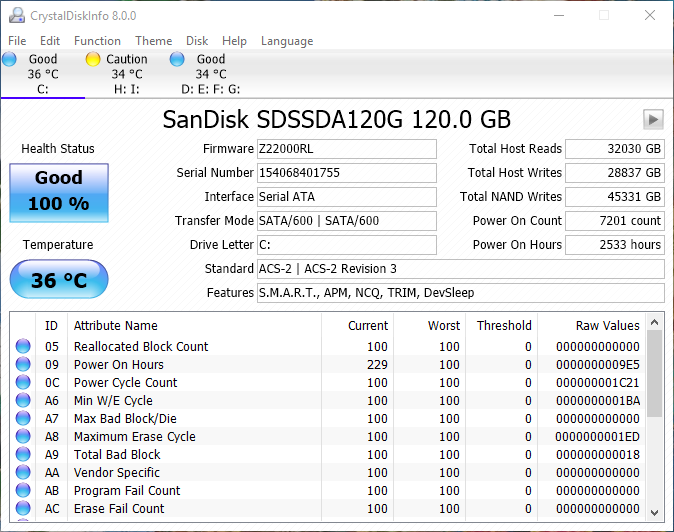
Using lsblk, we'll expose the DISCARD capabilities of those two devices: ~]# lsblk -dD Yes, it's the same drive (Samsung EVO 860) and the same firmware (3B6Q).

ID | Type | Drive Model | Size | Status | Speed | Temp | Slot ID | LSI IDĬ0u0p0 | SSD | S3YUNB0KC09340D Samsung SSD 860 EVO 2TB RVT03B6Q | 1.818 TB | Online, Spun Up | 6.0Gb/s | 23C | | 0 ID | Type | Size | Strpsz | Flags | DskCache | Status | OS Path | CacheCade |InProgressĬ0u0 | RAID-0 | 1818G | 512 KB | ADRA,WB | Enabled | Optimal | /dev/sda | None |None ID | H/W Model | RAM | Temp | BBU | FirmwareĬ0 | PERC H730P Adapter | 2048MB | 60C | Good | FW: 25. How do I know it's the same drive? Thanks to the use of megaclisas-status, the RAID HBA can be queried. Here's an identical drive (same model, same firmware) behind a RAID controller (a PERC H730P) on a different system (let's call that system System_B in the rest of this document): ~]# lsscsi Here's an SSD (a Samsung EVO 860 2Tb drive) attached to a SATA connector on a RHEL system (we will name that system System_A in the rest of this document): ~]# lsscsi
Megacli check disk health driver#
At the end of the SCSI I/O chain, the capabilities of a device boil down to the device itself, and the RAID driver your drive is attached to.

If your SSDs are behind a RAID volume attached to a RAID controller (HPE's SmartArray, Dell's PERC, or anything based on LSI/Avago's MegaRAID), here's what happens: ~]# fstrim ~]# Here's an example using a Red Hat Enterprise Linux (RHEL) system: ~]# fstrim -av On most systems, getting the performance back is usually a simple matter of issuing a filesystem trim ( fstrim) command. Or maybe you once filled your SSD to 100%, and now you cannot get the original performance/IOPS back.

Perhaps you have TLC (3bits per cell) or QLC (4bits per cell) drives instead of the usually more expensive enterprise-class SLC or MLC drives (the latter are less susceptible to a performance drop since they put aside more extra blocks to help with overwrites when the drive is at capacity). There are, however, some cases in which you may need to have the filesystem inform the drive of the blocks which it discarded. How well do you know Linux? Take a quiz and get a badge.Linux system administration skills assessment.A guide to installing applications on Linux.
Megacli check disk health download#


 0 kommentar(er)
0 kommentar(er)
